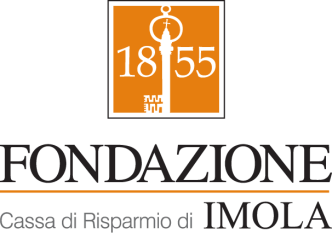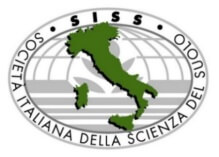Study on Dust and its Effects on Water of Raeis-Ali-Delwari Dam
DOI:
https://doi.org/10.6092/issn.2281-4485/7307Keywords:
Dust, water turbidity, Pm10Abstract
Dust is one of the most important types of air pollution which find a way to the air via human and natural activities. In recent years, Boushehr province in SE Iran has been exposed to increase of dust, and the problem has worsened dramatically
In the present descriptive-analytical research, it has been tried, using library and information studies, to determine the amount as well as the effects of dust upon turbidity of water of Raeis-Ali_Delwari dam in Boushehr province during 1395 AH.
Sampling of water level was done at 8 points of the dam during 12 days including clear days (9 days) and dusty days (3 days). The average levels of turbidity were measured in clear days at 6.11 up to 6.59 NTU, and in dusty days at 6.81 up to 7.73 NTU. Also, the density of suspended particles was approximately 688 μ gr/m3 in dusty days, and 134 μ gr/m3 as for usual days. The results showed that although the density of particles in dusty days had reached 5 times that in usual days, the turbidity of the water of the lake behind the dam was 0.1 times higher. One could infer that 3 days after a remarkable decrease of the dust in the province, there had been no considerable effect on turbidity of the dam water. Besides, it was implied that the decline in dust had occurred due to air mass movement and not because of the particles sediment.
References
Amiraslani,F Dragovich,D 2011. Combating desertification in Iran over the last 50 years: An overviewof changing approaches Journal of environmental management 92, 1-13
Brindley H, Osipov S, Smirnov A, Banks J, Levy R, Jish P, Stonechikov G, 2016, atmos7060077An assessment of the quality of aerosol retrievals over the Red Sea and evaluation of the climatological cloud-free dust direct radiative effect in the region,Journal of geophysical research atmospheres Volume 120, Issue 20 Pages 10,862–10,878 DOI: 10.1002/2015JD023282
Bilotta G.S, Brazier R.E 2008. Understanding the influence of suspended solids on water quality and aquatic biota. Water research 42 (2008) 2849 – 2861
Dagsson –Waldhauserova p, Magnusdottir A, Olafsson H and Arnalds O 2016 The Spatial Variation of Dust Particulate Matter Concentrations during Two Icelandic Dust Storms in 2015 Atmosphere 2016, 7, 77; doi:10.3390/
Deng F., Guo X., Liu H., Fang X., Yang M., Chen W. (2007). Effects of
dust storm PM2.5 on cell proliferation and cell cycle in human lung
fibroblasts. Toxicology in Vitro, 21(4): 632-638
Fuzzi S, Baltensperger U, Carslaw K, Decesari S, Denier van der Gon H, Facchini MC, Fowler D, Koren I, Langford B, Lohmann U, Nemitz E, Pandis S, Riipinen I, Rudich Y, Schaap M, Slowik JG, Spracklen DV, Vignati E, Wild M, Williams M, Gilardoni S. Particulate matter, air quality and climate: lessons learned and future needs, Atmos. Chem. Phys. 2015. 15:8217-8299.
Kim KH, Kabir E, Kabir S. A review on the human health impact of airborne particulate matter. Environment International. 2015. 74: 136-143.
Morris, V., Clemente-Colon, P., Nalli, N.R., Joseph, E., Armstrong, R.A., Detres, Y., Goldberg, M.D., Minnett, P.J., & Lumpkin, R. (2006). Measuring Trans-Atlantic Aerosol Transport From Africa. Eos, 87(50), 565-580.
Robert, E., Grippa, M., Kergoat, L., Pinet, S., Gal, L., Cochonneau, G., & Martinez, J.M. (2016). Monitoring water turbidity and surface suspended sediment concentration of the Bagre Reservoir (Burkina Faso) using MODIS and field reflectance data. International Journal of Applied Earth Observation and Geoinformation, 52, 243-251.
Sabouri R, Afkhami M, Zarasvandi A.and. Khodadadi M (2011). Correlation Analysis of Dust Concentration and Water Quality Indicators. International Journal of Enviromental Science and Development, Vol. 2, No. 2,
Solomon S , Qin D, Manning M, Chen Z, Marquis M, Averyt K. B., Tignor M,Miller H L, “Contribution of Working Group I to the Fourth Assessment Report of
the Intergovernmental Panel on Clima e t Change,” Cam-bridge University Press, New York, 2007.
Tagliabue, A.; Aumont, O.; Bopp, L. The impact of different external sources of iron on the global carbon cycle. Geophys. Res. Lett. 2014, 41, 920–926
Wang Sh., Wang J., Zhou Z., Shang K. (2005). Regional characteristics
of three kinds of dust storm events in China. Atmospheric Environment,
(3): 509-520.
Wang X., Dong Zh., Zhang J., Liu L. (2004). Modern dust storms in
China: an overview. Journal of Arid Environments, 58(4): 559-574.
Wei A., Meng Z. (2006). Evaluation of micronucleus induction of sand
dust storm fine particles (PM2.5) in human blood lymphocytes.
Environmental Toxicology and Pharmacology, 22(3): 292-297.
Downloads
Published
How to Cite
Issue
Section
License
Copyright (c) 2017 mohammad mehdi taghizadeh
Copyrights and publishing rights of all the texts on this journal belong to the respective authors without restrictions.
Articles published since 2020 are licensed under a Creative Commons Attribution 4.0 International License:
Previous articles are licensed under a Creative Commons Attribution-NonCommercial 3.0 Unported License:











